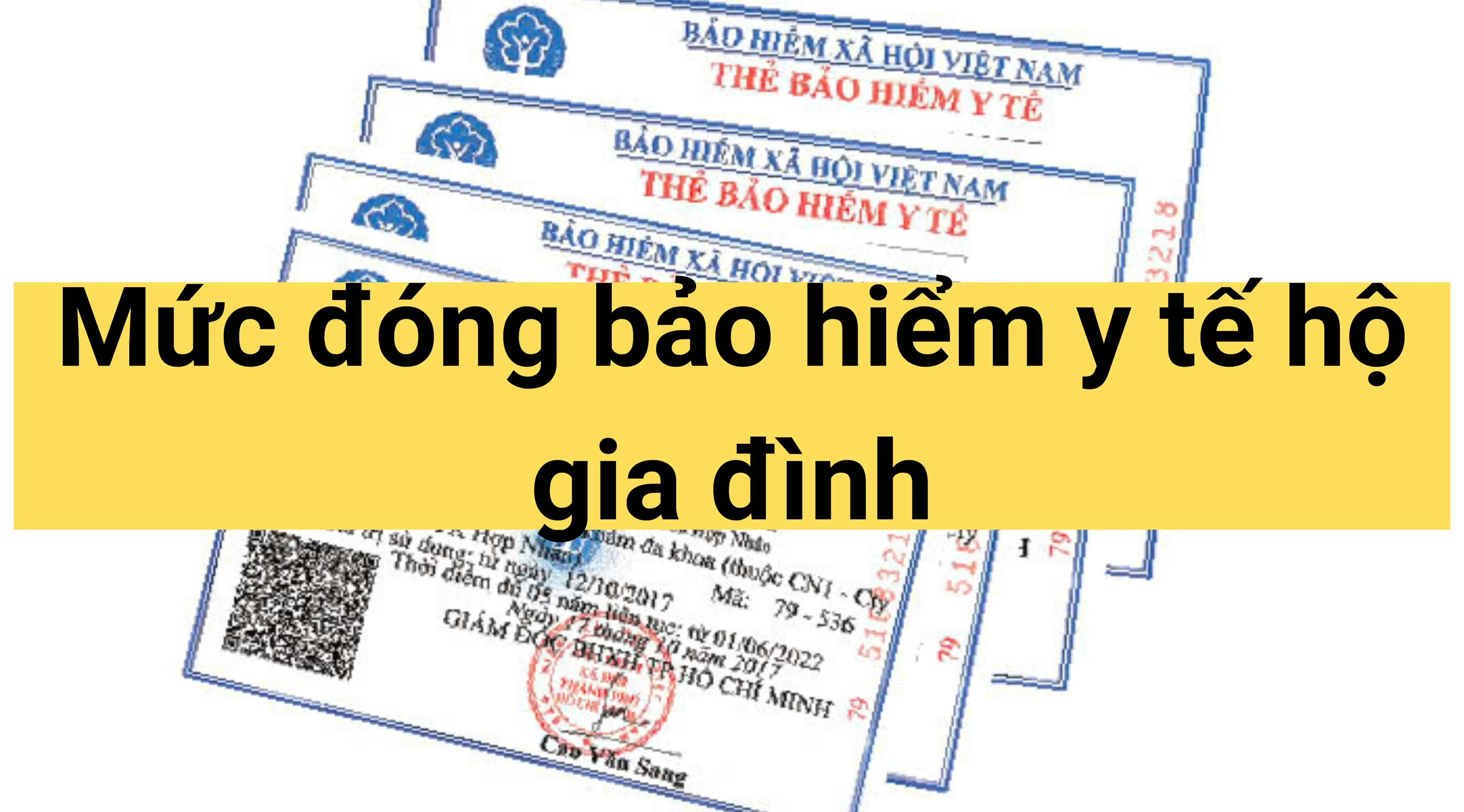 Tìm kiếm
Tìm kiếm
Chương I Luật doanh nghiệp 2014: Những quy định chung
| Số hiệu: | 146/2018/NĐ-CP | Loại văn bản: | Nghị định |
| Nơi ban hành: | Chính phủ | Người ký: | Nguyễn Xuân Phúc |
| Ngày ban hành: | 17/10/2018 | Ngày hiệu lực: | 01/12/2018 |
| Ngày công báo: | 02/11/2018 | Số công báo: | Từ số 1019 đến số 1020 |
| Lĩnh vực: | Bảo hiểm, Y tế | Tình trạng: | Còn hiệu lực |
TÓM TẮT VĂN BẢN
Đây là nội dung nổi bật tại Nghị định 146/2018/NĐ-CP quy định chi tiết và hướng dẫn biện pháp thi hành một số điều của Luật bảo hiểm y tế.
Theo đó, chậm nhất đến ngày 01/01/2020 cơ quan bảo hiểm xã hội phải có trách nhiệm thực hiện phát hành thẻ bảo hiểm y tế điện tử cho người tham gia bảo hiểm y tế.
Ngoài ra, Nghị định cũng làm rõ những quy định sau:
- Đối với mức đóng của nhóm tham gia bảo hiểm y tế theo hộ gia đình thì được giảm trừ mức đóng khi các thành viên tham gia bảo hiểm y tế cùng tham gia trong năm tài chính.
- Người hoạt động kháng chiến bị nhiễm chất độc hóa học có tỷ lệ suy giảm khả năng lao động từ 81% trở lên thì được mức hưởng 100% chi phí khám bệnh, chữa bệnh.
Nghị định 146/2018/NĐ-CP có hiệu lực từ ngày 01/12/2018.
Văn bản tiếng việt
Văn bản tiếng anh
Luật này quy định về việc thành lập, tổ chức quản lý, tổ chức lại, giải thể và hoạt động có liên quan của doanh nghiệp, bao gồm công ty trách nhiệm hữu hạn, công ty cổ phần, công ty hợp danh và doanh nghiệp tư nhân; quy định về nhóm công ty.
1. Các doanh nghiệp.
2. Cơ quan, tổ chức, cá nhân có liên quan đến việc thành lập, tổ chức quản lý, tổ chức lại, giải thể và hoạt động có liên quan của doanh nghiệp.
Trường hợp luật chuyên ngành có quy định đặc thù về việc thành lập, tổ chức quản lý, tổ chức lại, giải thể và hoạt động có liên quan của doanh nghiệp thì áp dụng quy định của Luật đó.
Trong Luật này, các từ ngữ dưới đây được hiểu như sau:
1. Cá nhân nước ngoài là người không có quốc tịch Việt Nam.
2. Cổ đông là cá nhân, tổ chức sở hữu ít nhất một cổ phần của công ty cổ phần.
Cổ đông sáng lập là cổ đông sở hữu ít nhất một cổ phần phổ thông và ký tên trong danh sách cổ đông sáng lập công ty cổ phần.
3. Cổ tức là khoản lợi nhuận ròng được trả cho mỗi cổ phần bằng tiền mặt hoặc bằng tài sản khác từ nguồn lợi nhuận còn lại của công ty cổ phần sau khi đã thực hiện nghĩa vụ về tài chính.
4. Công ty trách nhiệm hữu hạn bao gồm công ty trách nhiệm hữu hạn một thành viên và công ty trách nhiệm hữu hạn hai thành viên trở lên.
5. Cổng thông tin quốc gia về đăng ký doanh nghiệp là cổng thông tin điện tử được sử dụng để đăng ký doanh nghiệp qua mạng, truy cập thông tin về đăng ký doanh nghiệp.
6. Cơ sở dữ liệu quốc gia về đăng ký doanh nghiệp là tập hợp dữ liệu về đăng ký doanh nghiệp trên phạm vi toàn quốc.
7. Doanh nghiệp là tổ chức có tên riêng, có tài sản, có trụ sở giao dịch, được đăng ký thành lập theo quy định của pháp luật nhằm mục đích kinh doanh.
8. Doanh nghiệp nhà nước là doanh nghiệp do Nhà nước nắm giữ 100% vốn điều lệ.
9. Doanh nghiệp Việt Nam là doanh nghiệp được thành lập hoặc đăng ký thành lập theo pháp luật Việt Nam và có trụ sở chính tại Việt Nam.
10. Địa chỉ thường trú là địa chỉ đăng ký trụ sở chính, đối với tổ chức; địa chỉ đăng ký hộ khẩu thường trú hoặc địa chỉ nơi làm việc hoặc địa chỉ khác của cá nhân mà người đó đăng ký với doanh nghiệp để làm địa chỉ liên lạc.
11. Giá thị trường của phần vốn góp hoặc cổ phần là giá giao dịch trên thị trường cao nhất ngày hôm trước, giá thỏa thuận giữa người bán và người mua, hoặc giá do một tổ chức thẩm định giá chuyên nghiệp xác định.
12. Giấy chứng nhận đăng ký doanh nghiệp là văn bản hoặc bản điện tử mà Cơ quan đăng ký kinh doanh cấp cho doanh nghiệp ghi lại những thông tin về đăng ký doanh nghiệp.
13. Góp vốn là việc góp tài sản để tạo thành vốn điều lệ của công ty. Góp vốn bao gồm góp vốn để thành lập doanh nghiệp hoặc góp thêm vốn điều lệ của doanh nghiệp đã được thành lập.
14. Hệ thống thông tin quốc gia về đăng ký doanh nghiệp bao gồm Cơ sở dữ liệu quốc gia về đăng ký doanh nghiệp, Cổng thông tin quốc gia về đăng ký doanh nghiệp và hạ tầng kỹ thuật hệ thống.
15. Hồ sơ hợp lệ là hồ sơ có đầy đủ giấy tờ theo quy định của Luật này và nội dung các giấy tờ đó được kê khai đầy đủ theo quy định của pháp luật.
16. Kinh doanh là việc thực hiện liên tục một, một số hoặc tất cả các công đoạn của quá trình, đầu tư, từ sản xuất đến tiêu thụ sản phẩm hoặc cung ứng dịch vụ trên thị trường nhằm mục đích sinh lợi.
17. Người có liên quan là tổ chức, cá nhân có quan hệ trực tiếp hoặc gián tiếp với doanh nghiệp trong các trường hợp sau đây:
a) Công ty mẹ, người quản lý công ty mẹ và người có thẩm quyền bổ nhiệm người quản lý đó đối với công ty con trong nhóm công ty;
b) Công ty con đối với công ty mẹ trong nhóm công ty;
c) Người hoặc nhóm người có khả năng chi phối việc ra quyết định, hoạt động của doanh nghiệp đó thông qua cơ quan quản lý doanh nghiệp;
d) Người quản lý doanh nghiệp;
đ) Vợ, chồng, cha đẻ, cha nuôi, mẹ đẻ, mẹ nuôi, con đẻ, con nuôi, anh ruột, chị ruột, em ruột, anh rể, em rể, chị dâu, em dâu của người quản lý công ty hoặc của thành viên, cổ đông sở hữu phần vốn góp hay cổ phần chi phối;
e) Cá nhân được ủy quyền đại diện cho những người, công ty quy định tại các điểm a, b, c, d và đ khoản này;
g) Doanh nghiệp trong đó những người, công ty quy định tại các điểm a, b, c, d, đ, e và h khoản này có sở hữu đến mức chi phối việc ra quyết định của các cơ quan quản lý ở doanh nghiệp đó;
h) Nhóm người thỏa thuận cùng phối hợp để thâu tóm phần vốn góp, cổ phần hoặc lợi ích ở công ty hoặc để chi phối việc ra quyết định của công ty.
18. Người quản lý doanh nghiệp là người quản lý công ty và người quản lý doanh nghiệp tư nhân, bao gồm chủ doanh nghiệp tư nhân, thành viên hợp danh, Chủ tịch Hội đồng thành viên, thành viên Hội đồng thành viên, Chủ tịch công ty, Chủ tịch Hội đồng quản trị, thành viên Hội đồng quản trị, Giám đốc hoặc Tổng giám đốc và cá nhân giữ chức danh quản lý khác có thẩm quyền nhân danh công ty ký kết giao dịch của công ty theo quy định tại Điều lệ công ty.
19. Người thành lập doanh nghiệp là tổ chức, cá nhân thành lập hoặc góp vốn để thành lập doanh nghiệp.
20. Nhà đầu tư nước ngoài là tổ chức, cá nhân được hiểu là nhà đầu tư nước ngoài theo quy định của Luật đầu tư.
21. Phần vốn góp là tổng giá trị tài sản của một thành viên đã góp hoặc cam kết góp vào công ty trách nhiệm hữu hạn, công ty hợp danh. Tỷ lệ phần vốn góp là tỷ lệ giữa phần vốn góp của một thành viên và vốn điều lệ của công ty trách nhiệm hữu hạn, công ty hợp danh.
22. Sản phẩm, dịch vụ công ích là sản phẩm, dịch vụ thiết yếu đối với đời sống kinh tế - xã hội của đất nước, cộng đồng dân cư của một khu vực lãnh thổ mà Nhà nước cần bảo đảm vì lợi ích chung hoặc bảo đảm quốc phòng, an ninh và việc sản xuất, cung ứng sản phẩm, dịch vụ này theo cơ chế thị trường khó có khả năng bù đắp chi phí.
23. Thành viên công ty là cá nhân, tổ chức sở hữu một phần hoặc toàn bộ vốn điều lệ của công ty trách nhiệm hữu hạn hoặc công ty hợp danh.
24. Thành viên công ty hợp danh bao gồm thành viên hợp danh và thành viên góp vốn.
25. Tổ chức lại doanh nghiệp là việc chia, tách, hợp nhất, sáp nhập hoặc chuyển đổi loại hình doanh nghiệp.
26. Tổ chức nước ngoài là tổ chức thành lập ở nước ngoài theo pháp luật nước ngoài.
27. Tỷ lệ sở hữu cổ phần, phần vốn góp của nhà đầu tư nước ngoài là tổng tỷ lệ sở hữu vốn có quyền biểu quyết của tất cả nhà đầu tư nước ngoài trong một doanh nghiệp Việt Nam.
28. Vốn có quyền biểu quyết là phần vốn góp hoặc cổ phần, theo đó người sở hữu có quyền biểu quyết về những vấn đề thuộc thẩm quyền quyết định của Hội đồng thành viên hoặc Đại hội đồng cổ đông.
29. Vốn điều lệ là tổng giá trị tài sản do các thành viên đã góp hoặc cam kết góp khi thành lập công ty trách nhiệm hữu hạn, công ty hợp danh; là tổng giá trị mệnh giá cổ phần đã bán hoặc đã được đăng ký mua khi thành lập doanh nghiệp đối với công ty cổ phần.
1. Nhà nước công nhận sự tồn tại lâu dài và phát triển của các loại hình doanh nghiệp được quy định tại Luật này; bảo đảm bình đẳng trước pháp luật của các doanh nghiệp không phân biệt hình thức sở hữu và thành phần kinh tế; thừa nhận tính sinh lợi hợp pháp của hoạt động kinh doanh.
2. Nhà nước công nhận và bảo hộ quyền sở hữu tài sản, vốn đầu tư, thu nhập, các quyền và lợi ích hợp pháp khác của doanh nghiệp và chủ sở hữu doanh nghiệp.
3. Tài sản và vốn đầu tư hợp pháp của doanh nghiệp và chủ sở hữu doanh nghiệp không bị quốc hữu hóa, không bị tịch thu bằng biện pháp hành chính.
Trường hợp thật cần thiết vì lý do quốc phòng, an ninh hoặc vì lợi ích quốc gia, tình trạng khẩn cấp, phòng, chống thiên tai, Nhà nước trưng mua hoặc trưng dụng có bồi thường tài sản của doanh nghiệp; trường hợp trưng mua thì doanh nghiệp được thanh toán, trường hợp trưng dụng thì doanh nghiệp được bồi thường theo giá thị trường tại thời điểm trưng mua hoặc trưng dụng. Việc thanh toán hoặc bồi thường phải bảo đảm lợi ích của doanh nghiệp và không phân biệt đối xử giữa các loại hình doanh nghiệp.
1. Tổ chức chính trị, tổ chức chính trị - xã hội trong doanh nghiệp hoạt động theo quy định của Hiến pháp, pháp luật và Điều lệ tổ chức.
2. Doanh nghiệp có nghĩa vụ tôn trọng và không được cản trở, gây khó khăn cho việc thành lập tổ chức chính trị, tổ chức chính trị - xã hội tại doanh nghiệp; không được cản trở, gây khó khăn cho người lao động tham gia hoạt động trong các tổ chức này.
1. Tự do kinh doanh trong những ngành, nghề mà luật không cấm.
2. Tự chủ kinh doanh và lựa chọn hình thức tổ chức kinh doanh; chủ động lựa chọn ngành, nghề, địa bàn, hình thức kinh doanh; chủ động điều chỉnh quy mô và ngành, nghề kinh doanh.
3. Lựa chọn hình thức, phương thức huy động, phân bổ và sử dụng vốn.
4. Chủ động tìm kiếm thị trường, khách hàng và ký kết hợp đồng.
5. Kinh doanh xuất khẩu, nhập khẩu.
6. Tuyển dụng, thuê và sử dụng lao động theo yêu cầu kinh doanh.
7. Chủ động ứng dụng khoa học và công nghệ để nâng cao hiệu quả kinh doanh và khả năng cạnh tranh.
8. Chiếm hữu, sử dụng, định đoạt tài sản của doanh nghiệp.
9. Từ chối yêu cầu cung cấp nguồn lực không theo quy định của pháp luật.
10. Khiếu nại, tố cáo theo quy định của pháp luật về khiếu nại, tố cáo.
11. Tham gia tố tụng theo quy định của pháp luật.
12. Quyền khác theo quy định của luật có liên quan.
1. Đáp ứng đủ điều kiện kinh doanh khi kinh doanh ngành, nghề đầu tư kinh doanh có điều kiện theo quy định của Luật đầu tư và bảo đảm duy trì đủ điều kiện đầu tư kinh doanh đó trong suốt quá trình hoạt động kinh doanh.
2. Tổ chức công tác kế toán, lập và nộp báo cáo tài chính trung thực, chính xác, đúng thời hạn theo quy định của pháp luật về kế toán, thống kê.
3. Kê khai thuế, nộp thuế và thực hiện các nghĩa vụ tài chính khác theo quy định của pháp luật.
4. Bảo đảm quyền, lợi ích hợp pháp, chính đáng của người lao động theo quy định của pháp luật về lao động; không được phân biệt đối xử và xúc phạm danh dự, nhân phẩm của người lao động trong doanh nghiệp; không được sử dụng lao động cưỡng bức và lao động trẻ em; hỗ trợ và tạo điều kiện thuận lợi cho người lao động tham gia đào tạo nâng cao trình độ, kỹ năng nghề; thực hiện chế độ bảo hiểm xã hội, bảo hiểm thất nghiệp, bảo hiểm y tế và bảo hiểm khác cho người lao động theo quy định của pháp luật.
5. Bảo đảm và chịu trách nhiệm về chất lượng hàng hóa, dịch vụ theo tiêu chuẩn do pháp luật quy định hoặc tiêu chuẩn đã đăng ký hoặc công bố.
6. Thực hiện đầy đủ, kịp thời các nghĩa vụ về đăng ký doanh nghiệp, đăng ký thay đổi nội dung đăng ký doanh nghiệp, công khai thông tin về thành lập và hoạt động, báo cáo và các nghĩa vụ khác theo quy định của Luật này và quy định khác của pháp luật có liên quan.
7. Chịu trách nhiệm về tính trung thực, chính xác của thông tin kê khai trong hồ sơ đăng ký doanh nghiệp và các báo cáo; trường hợp phát hiện thông tin đã kê khai hoặc báo cáo thiếu chính xác, chưa đầy đủ thì phải kịp thời sửa đổi, bổ sung các thông tin đó.
8. Tuân thủ quy định của pháp luật về quốc phòng, an ninh, trật tự, an toàn xã hội, bình đẳng giới, bảo vệ tài nguyên, môi trường, bảo vệ di tích lịch sử-văn hóa và danh lam thắng cảnh.
9. Thực hiện nghĩa vụ về đạo đức kinh doanh để bảo đảm quyền, lợi ích hợp pháp của khách hàng và người tiêu dùng.
1. Các quyền và nghĩa vụ quy định tại Điều 7, Điều 8 và quy định khác có liên quan của Luật này.
2. Được hạch toán và bù đắp chi phí theo giá do pháp luật về đấu thầu quy định hoặc thu phí sử dụng dịch vụ theo quy định của cơ quan nhà nước có thẩm quyền.
3. Được bảo đảm thời hạn cung ứng sản phẩm, dịch vụ thích hợp để thu hồi vốn đầu tư và có lãi hợp lý.
4. Cung ứng sản phẩm, dịch vụ đủ số lượng, đúng chất lượng và thời hạn đã cam kết theo giá hoặc phí do cơ quan nhà nước có thẩm quyền quy định.
5. Bảo đảm các điều kiện công bằng và thuận lợi như nhau cho các khách hàng.
6. Chịu trách nhiệm trước pháp luật và khách hàng về số lượng, chất lượng, điều kiện cung ứng và giá, phí sản phẩm, dịch vụ cung ứng.
1. Doanh nghiệp xã hội phải đáp ứng các tiêu chí sau đây:
a) Là doanh nghiệp được đăng ký thành lập theo quy định của Luật này;
b) Mục tiêu hoạt động nhằm giải quyết vấn đề xã hội, môi trường vì lợi ích cộng đồng;
c) Sử dụng ít nhất 51% tổng lợi nhuận hằng năm của doanh nghiệp để tái đầu tư nhằm thực hiện mục tiêu xã hội, môi trường như đã đăng ký.
2. Ngoài các quyền và nghĩa vụ của doanh nghiệp theo quy định của Luật này, doanh nghiệp xã hội có các quyền và nghĩa vụ sau đây:
a) Duy trì mục tiêu và điều kiện quy định tại điểm b và điểm c khoản 1 Điều này trong suốt quá trình hoạt động; trường hợp doanh nghiệp đang hoạt động muốn chuyển thành doanh nghiệp xã hội hoặc doanh nghiệp xã hội muốn từ bỏ mục tiêu xã hội, môi trường, không sử dụng lợi nhuận để tái đầu tư thì doanh nghiệp phải thông báo với cơ quan có thẩm quyền để tiến hành các thủ tục theo quy định của pháp luật;
b) Chủ sở hữu doanh nghiệp, người quản lý doanh nghiệp xã hội được xem xét, tạo thuận lợi và hỗ trợ trong việc cấp giấy phép, chứng chỉ và giấy chứng nhận có liên quan theo quy định của pháp luật;
c) Được huy động và nhận tài trợ dưới các hình thức khác nhau từ các cá nhân, doanh nghiệp, tổ chức phi chính phủ và các tổ chức khác của Việt Nam và nước ngoài để bù đắp chi phí quản lý và chi phí hoạt động của doanh nghiệp;
d) Không được sử dụng các khoản tài trợ huy động được cho mục đích khác ngoài bù đắp chi phí quản lý và chi phí hoạt động để giải quyết vấn đề xã hội, môi trường mà doanh nghiệp đã đăng ký;
đ) Trường hợp được nhận các ưu đãi, hỗ trợ, doanh nghiệp xã hội phải định kỳ hằng năm báo cáo cơ quan có thẩm quyền về tình hình hoạt động của doanh nghiệp.
3. Nhà nước có chính sách khuyến khích, hỗ trợ và thúc đẩy phát triển doanh nghiệp xã hội.
4. Chính phủ quy định chi tiết Điều này.
1. Tùy theo loại hình, doanh nghiệp phải lưu giữ các tài liệu sau đây:
a) Điều lệ công ty; quy chế quản lý nội bộ của công ty; sổ đăng ký thành viên hoặc sổ đăng ký cổ đông;
b) Văn bằng bảo hộ quyền sở hữu công nghiệp; giấy chứng nhận đăng ký chất lượng sản phẩm; giấy phép và giấy chứng nhận khác;
c) Tài liệu, giấy tờ xác nhận quyền sở hữu tài sản của công ty;
d) Biên bản họp Hội đồng thành viên, Đại hội đồng cổ đông, Hội đồng quản trị; các quyết định của doanh nghiệp;
đ) Bản cáo bạch để phát hành chứng khoán;
e) Báo cáo của Ban kiểm soát, kết luận của cơ quan thanh tra, kết luận của tổ chức kiểm toán;
g) Sổ kế toán, chứng từ kế toán, báo cáo tài chính hằng năm.
2. Doanh nghiệp phải lưu giữ các tài liệu quy định tại khoản 1 Điều này tại trụ sở chính hoặc địa điểm khác được quy định trong Điều lệ công ty; thời hạn lưu giữ thực hiện theo quy định của pháp luật có liên quan.
Doanh nghiệp phải báo cáo Cơ quan đăng ký kinh doanh nơi doanh nghiệp có trụ sở chính trong thời hạn 05 ngày, kể từ ngày có thay đổi thông tin về họ, tên, địa chỉ liên lạc, quốc tịch, số Thẻ căn cước công dân, Giấy chứng minh nhân dân, Hộ chiếu hoặc chứng thực cá nhân hợp pháp khác của những người sau đây:
1. Thành viên Hội đồng quản trị đối với công ty cổ phần;
2. Thành viên Ban kiểm soát hoặc Kiểm soát viên;
3. Giám đốc hoặc Tổng giám đốc.
1. Người đại diện theo pháp luật của doanh nghiệp là cá nhân đại diện cho doanh nghiệp thực hiện các quyền và nghĩa vụ phát sinh từ giao dịch của doanh nghiệp, đại diện cho doanh nghiệp với tư cách nguyên đơn, bị đơn, người có quyền lợi, nghĩa vụ liên quan trước Trọng tài, Tòa án và các quyền và nghĩa vụ khác theo quy định của pháp luật.
2. Công ty trách nhiệm hữu hạn và công ty cổ phần có thể có một hoặc nhiều người đại diện theo pháp luật. Điều lệ công ty quy định cụ thể số lượng, chức danh quản lý và quyền, nghĩa vụ của người đại diện theo pháp luật của doanh nghiệp.
3. Doanh nghiệp phải bảo đảm luôn có ít nhất một người đại diện theo pháp luật cư trú tại Việt Nam. Trường hợp doanh nghiệp chỉ có một người đại diện theo pháp luật thì người đó phải cư trú ở Việt Nam và phải ủy quyền bằng văn bản cho người khác thực hiện quyền và nghĩa vụ của người đại diện theo pháp luật khi xuất cảnh khỏi Việt Nam. Trường hợp này, người đại diện theo pháp luật vẫn phải chịu trách nhiệm về việc thực hiện quyền và nghĩa vụ đã ủy quyền.
4. Trường hợp hết thời hạn ủy quyền theo khoản 3 Điều này mà người đại diện theo pháp luật của doanh nghiệp chưa trở lại Việt Nam và không có ủy quyền khác thì thực hiện theo quy định sau đây:
a) Người được ủy quyền vẫn tiếp tục thực hiện các quyền và nghĩa vụ của người đại diện theo pháp luật của doanh nghiệp tư nhân trong phạm vi đã được ủy quyền cho đến khi người đại diện theo pháp luật của doanh nghiệp trở lại làm việc tại doanh nghiệp;
b) Người được ủy quyền vẫn tiếp tục thực hiện các quyền và nghĩa vụ của người đại diện theo pháp luật của công ty trách nhiệm hữu hạn, công ty cổ phần, công ty hợp danh trong phạm vi đã được ủy quyền cho đến khi người đại diện theo pháp luật của công ty trở lại làm việc tại công ty hoặc cho đến khi chủ sở hữu công ty, Hội đồng thành viên, Hội đồng quản trị, quyết định cử người khác làm người đại diện theo pháp luật của doanh nghiệp.
5. Trường hợp doanh nghiệp chỉ có một người đại diện theo pháp luật và người này vắng mặt tại Việt Nam quá 30 ngày mà không ủy quyền cho người khác thực hiện các quyền và nghĩa vụ của người đại diện theo pháp luật của doanh nghiệp hoặc bị chết, mất tích, tạm giam, kết án tù, bị hạn chế hoặc mất năng lực hành vi dân sự thì chủ sở hữu công ty, Hội đồng thành viên, Hội đồng quản trị cử người khác làm người đại diện theo pháp luật của công ty.
6. Đối với công ty trách nhiệm hữu hạn có hai thành viên, nếu có thành viên là cá nhân làm người đại diện theo pháp luật của công ty bị tạm giam, kết án tù, trốn khỏi nơi cư trú, bị mất hoặc bị hạn chế năng lực hành vi dân sự hoặc bị Tòa án tước quyền hành nghề vì phạm tội buôn lậu, làm hàng giả, kinh doanh trái phép, trốn thuế, lừa dối khách hàng và tội khác theo quy định của Bộ luật hình sự thì thành viên còn lại đương nhiên làm người đại diện theo pháp luật của công ty cho đến khi có quyết định mới của Hội đồng thành viên về người đại diện theo pháp luật của công ty.
7. Trong một số trường hợp đặc biệt, Tòa án có thẩm quyền có quyền chỉ định người đại diện theo pháp luật trong quá trình tố tụng tại Tòa án.
1. Người đại diện theo pháp luật của doanh nghiệp có trách nhiệm sau đây:
a) Thực hiện các quyền và nghĩa vụ được giao một cách trung thực, cẩn trọng, tốt nhất nhằm bảo đảm lợi ích hợp pháp của doanh nghiệp;
b) Trung thành với lợi ích của doanh nghiệp; không sử dụng thông tin, bí quyết, cơ hội kinh doanh của doanh nghiệp, không lạm dụng địa vị, chức vụ và sử dụng tài sản của doanh nghiệp để tư lợi hoặc phục vụ lợi ích của tổ chức, cá nhân khác;
c) Thông báo kịp thời, đầy đủ, chính xác cho doanh nghiệp về việc người đại diện đó và người có liên quan của họ làm chủ hoặc có cổ phần, phần vốn góp chi phối tại các doanh nghiệp khác.
2. Người đại diện theo pháp luật của doanh nghiệp chịu trách nhiệm cá nhân đối với những thiệt hại cho doanh nghiệp do vi phạm nghĩa vụ quy định tại khoản 1 Điều này.
1. Người đại diện theo ủy quyền của chủ sở hữu, thành viên, cổ đông công ty là tổ chức phải là cá nhân được ủy quyền bằng văn bản nhân danh chủ sở hữu, thành viên, cổ đông đó thực hiện các quyền và nghĩa vụ theo quy định của Luật này.
2. Trường hợp Điều lệ công ty không có quy định khác thì việc cử người đại diện theo ủy quyền thực hiện theo quy định sau đây:
a) Tổ chức là thành viên công ty trách nhiệm hữu hạn hai thành viên trở lên có sở hữu ít nhất 35% vốn điều lệ có thể ủy quyền tối đa 03 người đại diện;
b) Tổ chức là cổ đông công ty cổ phần có sở hữu ít nhất 10% tổng số cổ phần phổ thông có thể ủy quyền tối đa 03 người đại diện.
3. Trường hợp chủ sở hữu, thành viên, cổ đông công ty là tổ chức cử nhiều người đại diện theo ủy quyền thì phải xác định cụ thể phần vốn góp, số cổ phần, cho mỗi người đại diện. Trường hợp chủ sở hữu, thành viên, cổ đông công ty không xác định phần vốn góp, số cổ phần tương ứng cho mỗi người đại diện theo ủy quyền, phần vốn góp, số cổ phần sẽ được chia đều cho số lượng người đại diện theo ủy quyền.
4. Việc chỉ định người đại diện theo ủy quyền phải bằng văn bản, phải thông báo cho công ty và chỉ có hiệu lực đối với công ty kể từ ngày công ty nhận được thông báo. Văn bản ủy quyền phải có các nội dung chủ yếu sau đây:
a) Tên, mã số doanh nghiệp, địa chỉ trụ sở chính của chủ sở hữu, thành viên, cổ đông;
b) Số lượng người đại diện theo ủy quyền và tỷ lệ cổ phần, phần vốn góp tương ứng mỗi người đại diện theo ủy quyền;
c) Họ, tên, địa chỉ thường trú, quốc tịch, số Thẻ căn cước công dân, Giấy chứng minh nhân dân, Hộ chiếu hoặc chứng thực cá nhân hợp pháp khác của từng người đại diện theo ủy quyền;
d) Thời hạn ủy quyền tương ứng của từng người đại diện theo ủy quyền; trong đó ghi rõ ngày bắt đầu được ủy quyền;
đ) Họ, tên, chữ ký của người đại diện theo pháp luật của chủ sở hữu, thành viên, cổ đông và của người đại diện theo ủy quyền.
5. Người đại diện theo ủy quyền phải có các tiêu chuẩn và điều kiện sau đây:
a) Có năng lực hành vi dân sự đầy đủ;
b) Không thuộc đối tượng bị cấm thành lập và quản lý doanh nghiệp;
c) Thành viên, cổ đông là công ty có phần vốn góp hay cổ phần do Nhà nước nắm giữ trên 50% vốn điều lệ không được cử vợ hoặc chồng, cha đẻ, cha nuôi, mẹ đẻ, mẹ nuôi, con đẻ, con nuôi, anh ruột, chị ruột, em ruột của người quản lý và của người có thẩm quyền bổ nhiệm người quản lý công ty làm người đại diện theo ủy quyền tại công ty khác;
d) Các tiêu chuẩn và điều kiện khác do Điều lệ công ty quy định.
1. Người đại diện theo ủy quyền nhân danh chủ sở hữu, thành viên, cổ đông thực hiện các quyền và nghĩa vụ của chủ sở hữu, thành viên, cổ đông tại Hội đồng thành viên, Đại hội đồng cổ đông theo quy định của Luật này. Mọi hạn chế của chủ sở hữu, thành viên, cổ đông đối với người đại diện theo ủy quyền trong việc thực hiện các quyền, nghĩa vụ của chủ sở hữu, thành viên, cổ đông tương ứng tại Hội đồng thành viên, Đại hội đồng cổ đông đều không có hiệu lực đối với bên thứ ba.
2. Người đại diện theo ủy quyền có trách nhiệm tham dự đầy đủ cuộc họp của Hội đồng thành viên, Đại hội đồng cổ đông; thực hiện các quyền và nghĩa vụ được ủy quyền một cách trung thực, cẩn trọng, tốt nhất, bảo vệ lợi ích hợp pháp của chủ sở hữu, thành viên, cổ đông ủy quyền.
3. Người đại diện theo ủy quyền chịu trách nhiệm trước chủ sở hữu, thành viên, cổ đông ủy quyền do vi phạm các nghĩa vụ quy định tại Điều này. Chủ sở hữu, thành viên, cổ đông ủy quyền chịu trách nhiệm trước bên thứ ba đối với trách nhiệm phát sinh liên quan đến quyền và nghĩa vụ được thực hiện thông qua người đại diện theo ủy quyền.
1. Cấp hoặc từ chối cấp Giấy chứng nhận đăng ký doanh nghiệp, yêu cầu người thành lập doanh nghiệp nộp thêm giấy tờ khác trái với quy định của Luật này; gây chậm trễ, phiền hà, cản trở, sách nhiễu người thành lập doanh nghiệp và hoạt động kinh doanh của doanh nghiệp.
2. Ngăn cản chủ sở hữu, thành viên, cổ đông của doanh nghiệp thực hiện các quyền, nghĩa vụ theo quy định của Luật này và Điều lệ công ty.
3. Hoạt động kinh doanh dưới hình thức doanh nghiệp mà không đăng ký hoặc tiếp tục kinh doanh khi đã bị thu hồi Giấy chứng nhận đăng ký doanh nghiệp.
4. Kê khai không trung thực, không chính xác nội dung hồ sơ đăng ký doanh nghiệp và nội dung hồ sơ đăng ký thay đổi nội dung đăng ký doanh nghiệp.
5. Kê khai khống vốn điều lệ, không góp đủ số vốn điều lệ như đã đăng ký; cố ý định giá tài sản góp vốn không đúng giá trị.
6. Kinh doanh các ngành, nghề cấm đầu tư kinh doanh; kinh doanh ngành, nghề đầu tư kinh doanh có điều kiện khi chưa đủ các điều kiện kinh doanh theo quy định của Luật đầu tư hoặc không bảo đảm duy trì đủ điều kiện kinh doanh trong quá trình hoạt động.
7. Rửa tiền, lừa đảo.
This Law deals with the establishment, organization, restructuring, dissolution, and relevant activities of enterprises, including limited liability companies, joint-stock companies, partnerships, sole proprietorships, and groups of enterprises.
1. Enterprises.
2. Agencies, organizations, and individuals involved in the establishment, organization, restructuring, dissolution, and relevant activities of enterprises.
Article 3. Application of the Law on Enterprises and specialized laws
If specialized laws contain regulations on establishment, organization, restructuring, dissolution, and relevant activities of enterprises, such regulations shall apply.
Article 4. Interpretation of terms
In this Law, the terms below are construed as follows:
1. Foreigner means any person who does not have Vietnamese nationality.
2. Shareholder means any individual or organization that owns at least a share of a joint-stock company.
Founding shareholder means any shareholder that owns at least an ordinary share and whose signature is on the list of founding shareholders of the joint-stock company.
3. Dividend means a net profit paid to each share in cash or other assets from the residual profit of the joint-stock company after all financial obligations are fulfilled.
4. Limited liability companies include single-member limited liability companies and multi-member limited liability companies.
5. National business registration portal means a website used for online business registration and access of information about business registration.
6. National Enterprise Registration Database means a collection of data about business registration nationwide.
7. Enterprise means an organization that has its own name, assets, office, and is registered in accordance with law to do business.
8. State-owned company means any enterprise of which 100% charter capital is held by the State.
9. Vietnamese company means any enterprise that is established or registered under Vietnam’s law and has its headquarter located in Vietnam.
10. Permanent residence means the address of the organization’s headquarter or address of the individual’s permanent residence, workplace, or another location that is registered by such person with the enterprise as contact.
11. Market price of a stake or share means the highest price on the market on the previous day, the price agreed between the seller and the buyer, or the price determined by a professional valuation organization.
12. Certificate of Business registration means a paper or electronic file issued by the business registration authority to the enterprise which contains information about business registration.
13. Capital contribution means the contribution of assets to form the company’s charter capital. Capital contribution is either contribution of capital to establish a new enterprise or contribution of additional capital to an existing enterprise.
14. National business registration information system comprises the National Enterprise Registration Database, national business registration portal, and the system infrastructure.
15. Valid application means an application that contains adequate documents as prescribed in this Law, and information on which are declared sufficiently as prescribed by law.
16. Business means the continuous execution of one, some, or all of stages of the investment process such as manufacturing, selling products or services on the market to earn profit.
17. Related person means any organization or individual that has a direct or indirect relationship with the enterprise, including the following cases:
a) The parent company, the manager of the parent company, and the person competent to designate such manager are related persons of subsidiaries in the same group;
b) Subsidiaries are related person of the parent company in the same group;
c) The person or a group of people who can influence the decision making and operation of the enterprise via a managerial body;
d) The enterprise manager;
dd) Spouse, parents, adoptive parents, children, adopted children, brothers-in-law, sisters-in-law of the enterprise manager or the members/partners/shareholders who have the controlling stake or shares;
e) Any person authorized to represent one of the persons or companies mentioned in Points a, b, c, d, and dd of this Clause;
g) The enterprise in which the persons or companies mentioned in Points a, b, c, d, dd, e, and h of this Clause have enough holding to influence the decision making of the managerial bodies of such enterprise;
h) A group of people who have an agreement to acquire stakes, shares, or interests of the company to have influence over the decision making of the company.
18. Enterprise managers is the manager of the company or manager of sole proprietorship, who is either an owner of a sole proprietorship, a general partner, the Chairpersons of the Board of members, a member of the Board of members, the company's President, the Chairperson of the Board of Directors, a member of the Board of Directors, the Director/General Director, or a person holding another managerial position who is entitled to enter into the company’s transactions on behalf of the company according to the company’s charter.
19. Founder means any organization or individual that establishes or contributes capital to establish an enterprise.
20. Foreign investor means any organization or individual that is defined as a foreign investor according to the Law on Investment.
21. Stake means the total value of assets that a member/partner contributes or promises to contribute to a limited liability company or partnership. Stake holding means the ratio of a member/partner’s stake to charter capital of the limited liability company or partnership.
22. Public services/products are services/products necessary for life and socio-economic conditions of the country or communities of certain areas that the State must provide to ensure common interests or National defense and security; the investment in manufacturing and supply of such services/products under market mechanism is not likely to be recouped.
23. Company member means any individual or organization that holds part or all of charter capital of a limited liability company or partnership.
24. Members of a partnership include general partners and capital contributors
25. Enterprise restructuring is either a total division, partial division, consolidation, acquisition of an enterprise, or conversion of the type of business entity.
26. Foreign organization means any organization that is established overseas under another country’s law.
27. Foreign investors’ holding means the total holding of voting capital of all foreign investors in a Vietnamese company.
28. Voting capital means the stake or shares under the ownership of a person who has the right to vote on the issues within the competence to decide the Board of members or the General Meeting of Shareholders.
29. Charter capital means the total value of assets that are contributed or promised to be contributed by members/partners when establishing a limited liability company or partnership; or the total face value of shares that are sold or registered when establishing a joint-stock company.
Article 5. State assurance about enterprises and owners of enterprises
1. The State recognizes the continued existence and development of types of business entities defined in this Law; ensures the legal equality of enterprises regardless of their forms and economic sectors; and acknowledges the legitimate profitability of business.
2. The State recognizes and protects the ownership of assets, capital, income, other lawful rights and interests of enterprises and owners of enterprises.
3. Legitimate assets and capital of enterprises and enterprise owners shall not be nationalized and shall not be administratively confiscated.
The State shall purchase or requisition enterprises’ assets for reasons of National defense and security, national interests, state of emergency, natural disaster response, and pay enterprises according to market prices at such times. The payment or compensation must ensure enterprises’ interests without discrimination between types of business entities.
Article 6. Political organizations and socio-political organizations within enterprises
1. Political organizations and socio-political organizations within enterprises shall operate in accordance with Constitution, law, and the organization’s charter.
2. Enterprises must not obstruct the establishment of intramural political organizations or socio-political organizations and must not obstruct employees to participate in such organizations.
Article 7. Rights of enterprises
1. Engage in the business lines that are not prohibited by law.
2. Exercise business autonomy; decide on organizational structure, business lines, and location; change the scale and business lines.
3. Decide on the method of raising and using capital.
4. Find markets, customers, and sign contracts proactively.
5. Engage in export and import.
6. Hire employees to serve the business.
7. Apply science and technologies to improve business efficiency and competitiveness.
8. Own, use, and dispose of assets of the enterprise.
9. Refuse to provide resources against the law.
10. Lodge complaints and denunciations in accordance with regulations of law on complaints and denunciations.
11. Participating in proceedings in accordance with laws.
12. Other rights prescribed by relevant laws.
Article 8. Obligations of enterprises
1. Satisfy the conditions when engaging in the business lines subject to business conditions as prescribed by the Law on Investment; maintain the fulfillment of such conditions throughout the business operation.
2. Do accounting, make and submit truthful financial statements in a timely manner according to regulations of law on accounting and statistics.
3. Declare, pay taxes and fulfill other financial obligation as prescribed by law.
4. Ensure the lawful rights and interests of employees according to regulations of law on employment; do not show discriminatory behaviors or insult employees in the enterprise; do not employ children and forced labour; provide support for and enable employees to have professional training; buy social insurance, unemployment insurance, health insurance, and other types of insurance for employees.
5. Ensure and take responsibility for quality of goods/services according to standards prescribed by law or registered/announced standards.
6. Fulfill obligations pertaining to business registration, changes of business registration information, disclosure of information about the enterprise establishment and operation, and other obligations prescribed in this Law and relevant laws.
7. Take responsibility for the truthfulness and accuracy of information in the application for business registration and reports; rectify incorrect information.
8. Comply with regulations of law on national defense and security, social order and safety, gender equality, protection of natural resources, the environment, historic sites and natural monuments.
9. Exercise the obligations pertaining to business ethics to protect the lawful rights and interests of customers and consumers.
Article 9. Rights and obligations of enterprises providing public services/products
1. The rights and obligations specified in Article 7, Article 8, and relevant regulations of this Law.
2. Get reimbursed for the costs in accordance with regulations of law on bidding, or collect service charges in accordance with regulations of competent authorities.
3. Provide products/services for a period of time sufficient to recoup investment and earn a reasonable amount of profit.
4. Provide products/services according to agreed quantity, quality, and time limits at the prices or charges decided by competent authorities.
5. Ensure equitability and equally convenience of customers.
6. Take legal responsibility for the quantity, quality, conditions, prices/charges of the products/services provided.
Article 10. Criteria, rights and obligations of social enterprises
1. Every social enterprise must satisfy the following criteria:
a) The enterprise is registered in accordance with this Law;
b) The enterprise's objective is to resolve social, environmental problems, or to serve public interests;
c) At least 51% of annual profit is used for reinvestment in order to serve the social, environmental purposes as registered.
2. Apart from the rights and obligations of enterprises prescribed in this Law, social enterprises also have the following rights and obligations:
a) Maintain the objectives and conditions prescribed in Point b and Point c Clause 1 of this Article throughout the operation; any operating enterprise that wishes to convert into a social enterprise, and any social enterprise that wishes to stop operating as a social enterprise shall notify the competent authority to complete necessary procedures;
b) Owners and managers of social enterprises shall be enabled to obtain licenses and relevant certificates as prescribed by law.
c) Seek and receive sponsorships from other individuals, enterprises, non-governmental organizations, other Vietnamese and foreign organizations to cover administrative expense and operating costs of the enterprise;
d) Do not use the sponsorships for purposes other than covering administrative expense and operating costs or resolving social, environmental issues registered by the enterprise;
dd) Submit annual reports on the enterprise’s operation to the competent authority when receiving incentives or support.
3. The State shall introduce policies to encourage, support, and boosts the development of social enterprises.
4. The Government shall elaborate this Article.
Article 11. Retention of enterprise’s documents
1. Depending on the form, the enterprise must retain the following documents:
a) The company’s charter; internal rules and regulations; member register or shareholder register;
b) Certificate of industrial property rights; Certificate of product quality registration; other licenses and certificates;
c) Documents proving the company’s ownership of its assets;
d) Minutes of meetings of the Board of members, the General Meeting of Shareholders, the Board of Directors; the enterprise’s decisions;
dd) The prospectus for securities issuance;
e) Reports made by the Control Board; conclusions of inspection authorities; conclusions of audit organizations;
g) Accounting books, accounting documents, and annual financial statements.
2. The documents mentioned in Clause 1 of this Article must be kept at the headquarter or another location prescribed in the company’s charter. The retention duration shall comply with relevant regulations of law.
Article 12. Reporting changes to information about the enterprise's manager
The enterprise must notify the business registration authority of the changes to the name, address, nationality, ID number, passport number or other ID papers of the following persons within 05 days from the day on which such changes are made:
1. Members of the Board of Directors of the joint-stock company;
2. Members of the Control Board or controllers;
3. The Director or General Director.
Article 13. Legal representative
1. The legal representative of an enterprise is the individual that exercises the rights and fulfills the obligations on when making transactions on behalf of the enterprise, represents the enterprise as the plaintiff, defendant, and person with relevant interests and duties before the arbitral tribunal, the court, exercises other rights and fulfills other obligations as prescribed by law.
2. A limited liability company or joint-stock company may have one or multiple legal representatives. The quantity, titles, rights and obligations of legal representative of the enterprise shall be specified in the company’s charter.
3. There must always be at least one legal representative that resides in Vietnam. If the enterprise has only one legal representative, such person must resides in Vietnam and authorizes another person in writing to perform the legal representative’s right and obligations when leaving Vietnam. In this case, the legal representative is still responsible for the performance of delegated rights and obligations.
4. In case the legal representative does not return to Vietnam at the end of the authorization period and does not give another authorization:
a) The authorized person of the sole proprietorship shall keep performing the legal representative’s rights and obligations within the scope of authorization until the legal representative goes back to work at the enterprise;
b) The authorized person of the limited liability company, joint-stock company, or partnership shall keep performing the legal representative’s rights and obligations within the scope of authorization until the legal representative goes back to work at the enterprise, or until the company owner, the Board of members, or the Board of Directors decides to designate another person as the legal representative of the enterprise.
5. If the enterprise has only one legal representative and such person is not present in Vietnam for more than 30 days without authorizing another person to act as the legal representative, or such person is dead, missing, detained, sentenced to imprisonment, or legally incompetent, then the company owner, the Board of members, or the Board of Directors shall designate another person as the legal representative.
6. With regard to a limited liability company with two members, if the member who is the legal representative of the company is detained or sentenced to imprisonment, makes a getaway, is missing or legally incompetent, or is banned from practicing by the court for smuggling, producing counterfeits, running illegal businesses, tax evasion, fraud, or another crime defined by Criminal Code, the other member is naturally the company’s legal representative until the Board of members makes a decision on company’s legal representatives.
7. In some special cases, the Court is entitled to appoint the legal representative during the proceedings.
Article 14. Responsibilities of the enterprise’s legal representative
1. The enterprise’s legal representative has the following responsibilities:
a) Perform the given rights and obligations in a truthful, careful manner to ensure the enterprise’s lawful interests;
b) Act in the best interest of the enterprise; do not use information, secrets, business opportunities of the enterprise; do not misuse the position, power, or property of the enterprise for self-seeking purposes or serving the interest of other entities;
c) Notify the enterprise of the representative and his/her related persons owning or having the controlling stake or shares in other enterprises.
2. The legal representative of the enterprise is personally responsible for the damage caused by his/her violations against the obligations mentioned in Clause 1 of this Article.
Article 15. Authorized representatives of owners, members, shareholders being organizations
1. The authorized representatives of owners, members, shareholders being organizations must be individuals authorized in writing to perform their rights and obligations prescribed in this Law on behalf of such owners, members, shareholders.
2. Unless otherwise prescribed by the company’s charter, the authorized representative shall be appointed as follows:
a) A multi-member limited liability company that holds at least 35% of charter capital may appoint up to 03 representatives;
b) A joint-stock company that holds at least 10% of ordinary shares may appoint up to 03 representatives.
3. If the owner, member, or shareholder being an organization appoints multiple authorized representatives, the stake/shares of each representative must be determined. If the owner, member, or shareholder fails to determine the stake/shares of each authorized representative, the stake/shares shall be split equally among the representatives.
4. Authorized representatives must be appointed in writing; the appointment of authorized representative must be notified to the company and is only effective when the company receives the notification. The letter of authorization must contain:
a) Full name, enterprise identification number, address of the headquarter of the owner, member, shareholder;
b) The quantity of authorized representatives and their corresponding holding of shares/stake;
c) Full name, permanent residence, nationality, ID number, passport number of each authorized representative;
d) The duration of authorization of each representative, including the beginning date;
dd) Full names, signatures of legal representatives, owners, members, shareholders, and authorized representatives.
5. Authorized representatives must satisfy the conditions below:
a) The authorized representative is legally competent;
b) The authorized representative is not prohibited from establishing and managing enterprises;
c) Members, shareholders being companies of whom >50% of charter capital is held by the State in the form of stake or shares must not appoint their spouses, parents, adoptive parents, children, adopted children, siblings of the manager or the person competent to appoint the company manager as authorized representatives of other companies;
d) The authorized representative satisfies other conditions prescribed by the company’s charter.
Article 16. Responsibilities of authorized representative of owners, members, shareholders being organizations
1. The authorized representatives of owners, members, shareholders being organizations shall perform the rights and obligations of owners, members, and shareholders on their behalf at the Board of members or the General Meeting of Shareholders in accordance with this Law. All restrictions imposed by owners, members, shareholders upon the authorized representative’s performance of the rights and obligations of being owners, members, and shareholders shall not apply to any third party.
2. Authorized representatives must attend every meeting of the Board of members or the General Meeting of Shareholders; perform given rights and obligations in a truthful and careful manner to protect the lawful interests of the authorizing owners, members and shareholders
3. Authorized representatives are responsible to owners, members, shareholders being organizations for failure to fulfill the obligations prescribed in this Article. The authorizing owners, members, and shareholders are responsible to the third party for the responsibility pertaining the rights and obligations performed by the authorized representatives.
1. Issuing or refusing to issue the Certificate of Business registration; requesting business founders to submit additional documents against this Law; delaying, obstructing, harassing business founders or enterprises’ operation.
2. Obstructing owners, members, shareholders of enterprises performing the obligations and rights prescribed in this Law and the company’s charter.
3. Doing business as an enterprise without registration; carrying on doing business after the Certificate of Business registration has been revoked.
4. Providing untruthful information in the application for enterprise registration or application for adjustments to business registration.
5. Declaring false charter capital; failure to contribute sufficient charter capital as registered; deliberately determining inaccurate values of contributed assets.
6. Engaging in prohibited business lines; engaging in business lines subject to conditions without satisfying all of the conditions as prescribed in the Law on Investment, or failing to maintain fulfillment of such conditions throughout the business operation.
7. Money laundering, fraud.
Văn bản liên quan
Cập nhật
Bài viết liên quan
Lãnh bảo hiểm thất nghiệp có được hưởng bảo hiểm y tế không?

Lãnh bảo hiểm thất nghiệp có được hưởng bảo hiểm y tế không?
Bảo hiểm thất nghiệp và bảo hiểm y tế là hai chính sách quan trọng nhắm hỗ trợ người lao động trong các vấn đề khó khăn. Khi bạn thất nghiệp và đang hỗ trợ cấp thất nghiệp, một câu hỏi phổ biến được đặt ra là. liệu người lao động có tiếp tục được hưởng quyền lợi bảo hiểm y tế hay không? 27/11/2024Năm 2025 không có giấy chuyển tuyến tuyến có được hưởng bảo hiểm y tế không? Mức hưởng bao nhiêu phần trăm?

Năm 2025 không có giấy chuyển tuyến tuyến có được hưởng bảo hiểm y tế không? Mức hưởng bao nhiêu phần trăm?
Trong bối cảnh hệ thống bảo hiểm y tế tại Việt Nam đang ngày càng hoàn thiện, nhiều người vẫn còn băn khoăn về quy trình và quyền lợi khi tham gia bảo hiểm. Một câu hỏi đang được quan tâm đặc biệt là. "Năm 2025, nếu không có giấy chuyển tuyến, người bệnh có được hưởng bảo hiểm y tế hay không? Mức hưởng bao nhiêu phần trăm?". 19/11/2024Mức đóng BHXH từ tháng 7/2024 của người lao động có tăng khi tăng lương tối thiểu vùng không?

Mức đóng BHXH từ tháng 7/2024 của người lao động có tăng khi tăng lương tối thiểu vùng không?
Kể từ tháng 7/2024, việc điều chỉnh mức lương tối thiểu vùng đã trở thành chủ đề được đông đảo người lao động quan tâm, không chỉ bởi ảnh hưởng đến thu nhập mà còn tác động trực tiếp đến các khoản đóng bảo hiểm xã hội (BHXH). Một trong những câu hỏi phổ biến là liệu mức đóng BHXH của người lao động có tăng khi lương tối thiểu vùng được nâng lên hay không? Để hiểu rõ hơn về vấn đề này, cần xem xét các quy định hiện hành về việc tính tiền lương đóng BHXH bắt buộc và cách mức lương tối thiểu vùng ảnh hưởng đến việc đóng góp vào quỹ bảo hiểm xã hội. 18/11/2024Mức đóng bảo hiểm y tế hộ gia đình năm 2024

Mức đóng bảo hiểm y tế hộ gia đình năm 2024
Bảo hiểm y tế là một trong những chính sách an sinh xã hội quan trọng, giúp người dân tiếp cận các dịch vụ y tế một cách dễ dàng và tiết kiệm. Tuy nhiên, mức đóng BHYT hộ gia đình lại có những thay đổi theo từng năm. Để nắm bắt được những quy định mới nhất về mức đóng BHYT năm 2024, mời bạn đọc cùng tìm hiểu thông tin trong bài viết này. 18/11/2024Link tra cứu thời hạn Bảo hiểm y tế của BHXH Việt Nam?

Link tra cứu thời hạn Bảo hiểm y tế của BHXH Việt Nam?
Bảo hiểm y tế (BHYT) đóng vai trò vô cùng quan trọng trong việc đảm bảo quyền lợi chăm sóc sức khỏe cho người dân Việt Nam. Để được hưởng các dịch vụ y tế một cách thuận lợi và đầy đủ, việc kiểm tra thời hạn hiệu lực của thẻ BHYT là điều cần thiết. Tuy nhiên, không phải ai cũng biết cách tra cứu thông tin này một cách nhanh chóng và chính xác. Trong bài viết này, chúng tôi sẽ giới thiệu đến bạn link tra cứu thời hạn bảo hiểm y tế do Bảo hiểm xã hội Việt Nam cung cấp, giúp bạn dễ dàng kiểm tra thông tin cần thiết về thẻ BHYT của mình. 16/11/2024Thẻ BHYT hết hạn khi đang nằm viện thì có được bảo hiểm thanh toán viện phí hay không?

Thẻ BHYT hết hạn khi đang nằm viện thì có được bảo hiểm thanh toán viện phí hay không?
Thẻ bảo hiểm y tế (BHYT) là tấm vé quan trọng giúp người tham gia được hỗ trợ tài chính khi gặp phải các vấn đề về sức khỏe, đặc biệt là trong những trường hợp nằm viện. Tuy nhiên, một câu hỏi thường được nhiều người quan tâm là. nếu thẻ BHYT hết hạn trong quá trình đang điều trị tại bệnh viện, liệu các chi phí khám chữa bệnh có tiếp tục được bảo hiểm chi trả không? Đây là vấn đề phức tạp, liên quan đến nhiều quy định của pháp luật về BHYT, và có thể ảnh hưởng trực tiếp đến quyền lợi của người bệnh. Hãy cùng tìm hiểu rõ hơn về tình huống này và những quyền lợi người bệnh có thể nhận được khi gặp phải trường hợp thẻ BHYT hết hạn trong thời gian điều trị. 16/11/202403 thay đổi về mức đóng BHYT từ ngày 01/7/2024

03 thay đổi về mức đóng BHYT từ ngày 01/7/2024
Bảo hiểm y tế là một hình thức bảo hiểm bắt buộc được áp dụng đối với các đối tượng theo Luật bảo hiểm xã hội và Luật bảo hiểm y tế. Từ ngày 01/07/2024, mức đóng bảo hiểm y tế có những thay đổi như thế nào? Bạn hãy cùng tìm hiểu vấn đề này thông qua bài viết dưới đây nhé. 16/11/2024Người tham gia BHYT 5 năm liên tục có quyền lợi gì?

Người tham gia BHYT 5 năm liên tục có quyền lợi gì?
Bảo hiểm y tế (BHYT) là một trong những chính sách xã hội quan trọng, mang lại nhiều lợi ích cho người dân. Đặc biệt, với những người đã tham gia BHYT liên tục trong 5 năm, Nhà nước có những quy định ưu đãi đặc biệt. Vậy, người tham gia BHYT 5 năm liên tục sẽ được hưởng những quyền lợi gì? Bài viết này sẽ giúp bạn giải đáp câu hỏi trên. 10/11/2024Người lao động có phải xuất trình thẻ bảo hiểm y tế cùng giấy tờ chứng minh nhân thân khi khám, chữa bệnh?

Người lao động có phải xuất trình thẻ bảo hiểm y tế cùng giấy tờ chứng minh nhân thân khi khám, chữa bệnh?
Người lao động có phải xuất trình thẻ bảo hiểm y tế cùng giấy tờ chứng minh nhân thân khi khám, chữa bệnh? 04/11/202406 nhóm đối tượng bắt buộc tham gia BHYT năm 2022


 Nghị định 146/2018/NĐ-CP (Bản Word)
Nghị định 146/2018/NĐ-CP (Bản Word)
 Nghị định 146/2018/NĐ-CP (Bản Pdf)
Nghị định 146/2018/NĐ-CP (Bản Pdf)